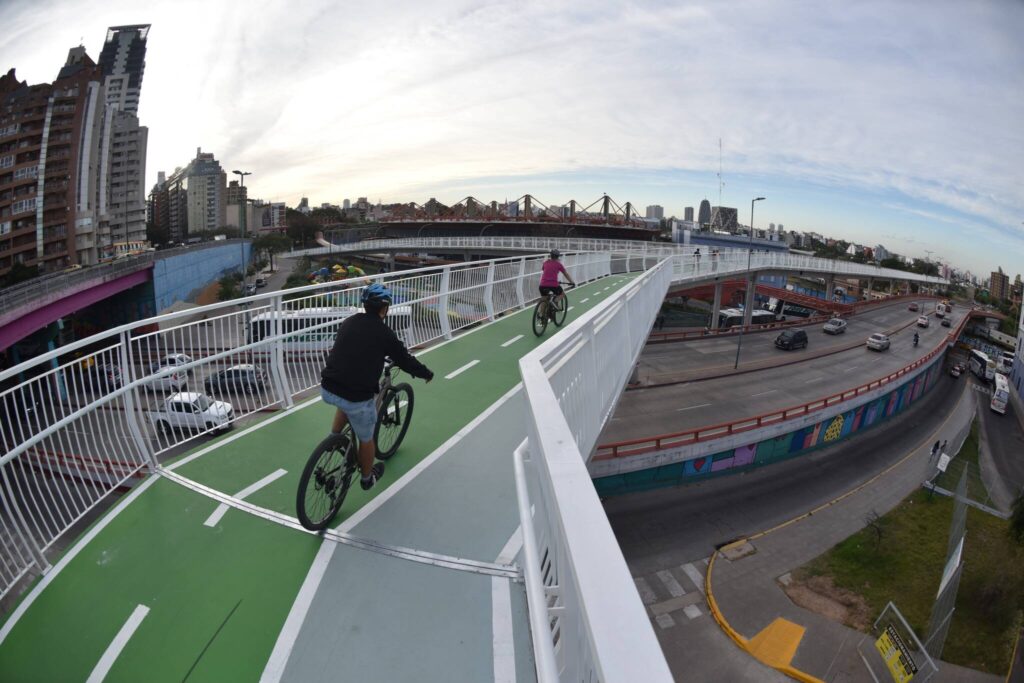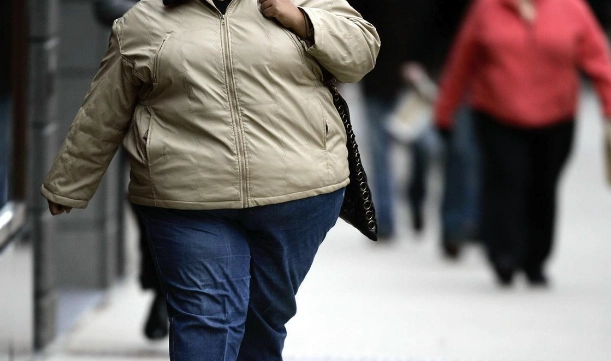Coauthor Camila Niclis
“Bicycle has the benefit that you can go faster and where you want to, which does not always happen with other means of public transport in the city. And it is nice because you are outdoors” says Julia, a young user of the public bicycle service in the city of Cordoba, Argentina. The service is free of charge and consists of seven bicycle parking facilities, connected by a network of overland cycling lanes, complemented by a recently implemented elevated bicycle lane of almost 2 km in length in the city.

Julia is right: using bicycles instead of motorized means of transport in big cities can be more practical and attractive. But also, faced with the problems of climate change and obesity, promoting the use of bicycles instead of cars is a concrete action that brings two benefits in one. On the one hand, it is ecologically more sustainable. On the other hand, it promotes a healthy lifestyle by providing the opportunity to practice physical exercise. This contributes to the prevention of overweight and other chronic diseases such as cardiovascular disease and diabetes.
The experience of Cordoba (Argentina) and other similar ones carried out in Latin American cities, such as the Bogotá Bicycle Sharing System in Colombia or the Quito Public Bicycle System in Ecuador, are examples of opportunities to obtain co-benefits for health from actions aimed at mitigating climate change.
Global syndemic: an innovative vision to search for two-in-one actions
With the sudden appearance of Covid-19 in our lives, talk about pandemics has become an everyday occurrence. The notion of syndemic, on the other hand, is somewhat less well known. In general terms, the concept refers to epidemics or pandemics that coincide temporally and geographically, interacting and enhancing their harmful effects on the health of the affected population. This idea came to the attention of the scientific community a few years ago, following a report published by the Commission on Obesity of the medical journal Lancet.
This article introduced the vision of “The Global Syndemic of Obesity, Undernutrition, and Climate Change“. From this perspective, it is understood that malnutrition in all its forms is a pandemic that threatens global health, and that coincides in time and place interacting with the climate change that today impacts the majority of people in every country and region of the world.
It is estimated that in several Latin American countries, such as Mexico, Panama, Argentina, and Chile, more than one-third of the adult population lives with obesity. In addition, according to the Intergovernmental Panel on Climate Change (IPCC), this region is highly vulnerable and is being strongly impacted by the consequences of climate change, a situation that is amplified by numerous factors, including inequality and poverty. In particular, the effect of climate change on the food security of populations in turn increases the prevalence of malnutrition.
We can consider the obesity epidemic and climate change as carriages of a train that is speeding toward a scenario of health risks that is not very encouraging. We can also imagine that it is necessary to slow down the train and find opportune actions capable of mitigating environmental damage and negative impacts on human health. To this end, it is useful to take up the global syndemic vision, which recognizes that the wheels of the train that drives the pandemics of undernutrition and climate change are largely shared factors.
Recognizing that there are shared determinants is important, as it provides an opportunity to seek joint responses to address these global challenges. The unhealthy lifestyles that are gaining ground in more urbanized societies, as well as marked social inequality, are some examples of these factors that simultaneously drive or determine the two pandemics.
Obesity and climate change: life in cities as a meeting point
Latin America is one of the most urbanized regions in the developing world. Two-thirds of the Latin American population lives in cities with more than 20,000 inhabitants and almost 80% in urban areas, equivalent to approximately 530 million people. The current pace of life in their cities brings with it changes in lifestyles that can be detrimental to health and the environment in which we live.
Urban residents are generally the most exposed to air pollution and sedentary lifestyles. The use of automobiles is a practice that increases exposure to these factors. In addition, in cities, it is common to find a high consumption of ultra-processed food products and a low consumption of fruits and vegetables. It is widely recognized that an unhealthy diet is associated with an increased risk of obesity and chronic diseases. On the other hand, the relationship between diet and climate change is less well-known.
In this regard, an article published in the scientific journal Current Obesity Reports explains that livestock production for meat and dairy products generates methane gas, which accounts for more than 80% of agricultural greenhouse gases (GHG). Moreover, overconsumption of ultra-processed products can increase the generation of urban waste, also contributing to a higher concentration of GHG. GHG emissions are largely responsible for the greenhouse effect and contribute to global warming, which is of particular concern in urban environments.
Therefore, paying attention to the ways of moving within cities, as well as promoting a healthy and balanced diet and encouraging ecologically sustainable food production, will not only be important to take care of human health, but also to contribute to environmental sustainability.
“The bicycle service in Cordoba is available, it is open,” says Julia, who adds that “the only requirement is to be a citizen.” Equal opportunities, the “leave no one behind” proposed by the 2030 Agenda for Sustainable Development, is perhaps the greatest challenge to promote truly transformative actions for the environment and global health.
*This text is a result of the Climate, Environment, and Health + Migration Program developed by the Inter-American Institute for Global Change Research (IAI) and Latinomerica21.
Camila Niclis holds a Ph.D. in Health Sciences and a BA degree in Nutrition. She is a researcher at CONICET and a Professor of Research Methodology (National University of Córdoba, Argentina). She deals with the nutritional and socio-environmental epidemiology of chronic diseases from a life cycle approach.
Translated by Janaína Ruviaro da Silva from the original in Spanish












